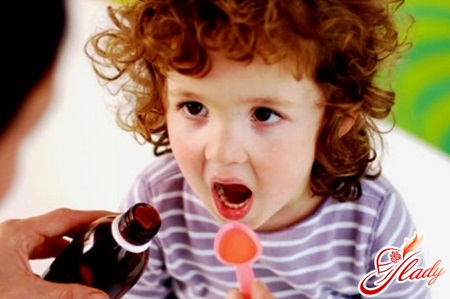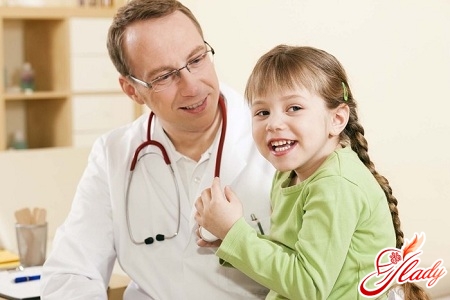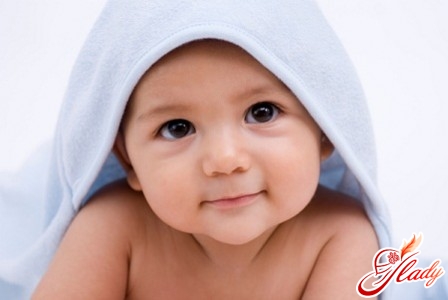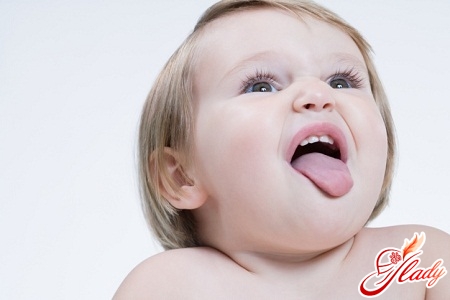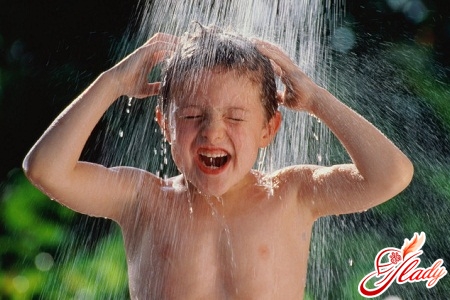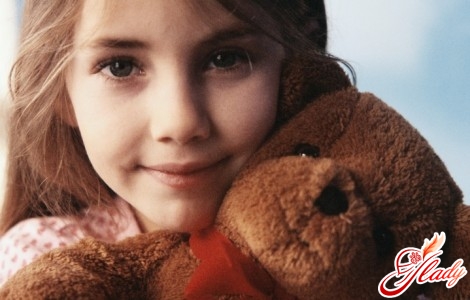 Healthy and correctly developing children areexactly what all parents want without exception. But, unfortunately, it does not always happen, and parents are forced to state the fact that their baby is not like all the other kids. Often, parents simply refuse to accept this fact and fall into an eerie despair and depression, blaming only themselves for all the misfortunes, although often they are absolutely in no way to blame. This article will deal with a problem such as autism in children. If your child is diagnosed with this, the first thing to do is to calm down. Having a child with autism does not mean that your baby is worse than others - it's just different. The second thing that parents of such children need is as much information as possible about the disease, because only knowing the enemy in person, you can successfully fight with him. Nowadays, there is a huge amount of all kinds of literature describing the psychological characteristics of children with autism and giving advice to parents. However, despite this, parents faced with a similar problem are in complete information isolation. Why is this happening, despite the huge amount of information? First, most of the literature is intended for medical professionals, since it is written in scientific terms, with a multitude of specialized terms and concepts. Secondly, the rest of the literature is pseudoscientific, not carrying absolutely any useful information, and often harm. After all, if autism is in children, treatment should be carried out by experienced specialists, and not by parents led by very questionable advice from equally dubious printed sources. The main allies of parents in the upbringing and treatment of such children should become experienced teachers and psychologists who have experience working with this group of children. But, needless to say, in no case should parents try to completely transfer responsibility for their children to them. The extent to which the psychological characteristics of children with autism will allow them to adapt in the future will depend only on their parents - on their love, patience and desire to help their baby. After all, not one, even the most upscale and competent specialist knows yours, even if not a little like everything else, a baby is better than his dad knows and, of course, mom is the most native person who has been watching his development and growth since the very first day of his conception. In Russia there is a certain classification of diseases of the so-called tenth revision. This classification characterizes children's autism as follows: this disease is a complex violation of the overall development of a child aged 2 to 5 years, which largely affects the child's psyche. The signs of autism in children are typical and easily recognizable. One of the first and main signs is the change in the normal need for communication with the people around him, both family members and peers. To a large extent, the ability to social adaptation suffers, a certain pathological stereotyping of the child's behavior, his thinking and behavior is noted. Talking about the violation of communication, doctors do not mean a violation of speech or hearing. The organs of hearing and the speech apparatus in such children often function perfectly normally. It would be wrong to talk about autism in a hearing-impaired child or child with serious speech disorders in the event that such a kid still reaches out to communication, compensating for his violations with active gestures, facial expressions and other non-verbal means of communication. Children who suffer from autism, when trying to communicate with him, someone reacts, as a rule, in two ways - either simply ignores all attempts at psychological contact with him, or actively, and sometimes even aggressively, rejects all attempts to communicate with him, carefully avoiding them. It is very difficult to establish any contact with such a child, and even if it succeeds, such contact will be purely formal and highly distorted. Children with autism are absolutely incomprehensible human experiences, emotions, motivation of actions of other people. Because of this perception of the world, psychological characteristics of children with autism, all mental and psychological functions, even those that are potentially preserved in an unchanged form, develop with very significant deviations from the norm. Many people believe that signs of autism in children necessarily include dementia. However, this is an absolutely erroneous point of view - these babies have, as well as healthy children, a completely different level of intellectual development - from pronounced dementia to manifestations of giftedness and extremely high level of development. A little bit above it has already been said that children with autism have a certain stereotyped behavior. By this notion, "stereotyped behavior" means a repeated, obsessive cyclical repetition of absolutely non-functional and meaningless movements, beginning with biting the lips and shaking hands, ending with fairly long and complex actions reminiscent of some incomprehensible ritual. Aggression, including self-aggression directed by the child towards self-aggression, various protest reactions, from passive to pronounced, all kinds of fears and other similar behavioral deviations, certainly accompany this disease, but are not its constant companions. Any of the above signs, and sometimes all, may simply be absent. Also, parents should remember that as the child grows up and grows up, almost all signs of autism will change, often in the most cardinal way. However, to the great regret, children with autism are never considered fully cured and clinically healthy - signs of autism to a greater or lesser extent, but remain for life. Adequate treatment and psychological work with the child are able to reduce their manifestations to a possible minimum, but still not completely rid of the disease. Signs of autism in children, even the very first and common, should absolutely know all parents without exception. After all, the earlier it will be possible to identify the disease and begin the necessary treatment and psychological correction, the less pronounced will be the manifestations of autism. Sometimes it is very difficult for parents to objectively assess their crumbs, and therefore immediately to find out the problem - there are some deviations in the child's psychological and mental development, parents do not succeed at once, but only when it acquires a serious enough character. And autism in children symptoms in the initial stage is very vague. That is why any parent should listen to what other people say about his child - relatives, friends, children's doctors and psychologists. Of course, you should not make a diagnosis yourself and fall into despair only because the neighbor's old woman told you that her grandson at that age already talked with might and main. But if several people point out to you the same problem, even if it's your opinion and nonexistent, of course, it's worth thinking about and addressing the child to a child psychologist. Of course, in most cases, the psychologist will reassure parents and dispel all their doubts. However, in the case of the health and well-being of the child, it is better to be safe than not to notice and miss the problem in time. It is also necessary to take into account the fact that some, especially the initial, signs of autism are very, very similar to each other with the symptoms of other diseases and abnormalities. Most often, autism is beginning to reflect on the field of how the inappropriate behavior of the kid is noticed: swinging in the arena for a very long time, lack of communication skills, unwillingness to contact even the mother and others. Of course, the appearance of such a symptom, or even a combination of them, does not always indicate that the child has a disease such as autism or any other, but parents still need to turn to a child psychologist or psychiatrist, even for their own comfort.
Healthy and correctly developing children areexactly what all parents want without exception. But, unfortunately, it does not always happen, and parents are forced to state the fact that their baby is not like all the other kids. Often, parents simply refuse to accept this fact and fall into an eerie despair and depression, blaming only themselves for all the misfortunes, although often they are absolutely in no way to blame. This article will deal with a problem such as autism in children. If your child is diagnosed with this, the first thing to do is to calm down. Having a child with autism does not mean that your baby is worse than others - it's just different. The second thing that parents of such children need is as much information as possible about the disease, because only knowing the enemy in person, you can successfully fight with him. Nowadays, there is a huge amount of all kinds of literature describing the psychological characteristics of children with autism and giving advice to parents. However, despite this, parents faced with a similar problem are in complete information isolation. Why is this happening, despite the huge amount of information? First, most of the literature is intended for medical professionals, since it is written in scientific terms, with a multitude of specialized terms and concepts. Secondly, the rest of the literature is pseudoscientific, not carrying absolutely any useful information, and often harm. After all, if autism is in children, treatment should be carried out by experienced specialists, and not by parents led by very questionable advice from equally dubious printed sources. The main allies of parents in the upbringing and treatment of such children should become experienced teachers and psychologists who have experience working with this group of children. But, needless to say, in no case should parents try to completely transfer responsibility for their children to them. The extent to which the psychological characteristics of children with autism will allow them to adapt in the future will depend only on their parents - on their love, patience and desire to help their baby. After all, not one, even the most upscale and competent specialist knows yours, even if not a little like everything else, a baby is better than his dad knows and, of course, mom is the most native person who has been watching his development and growth since the very first day of his conception. In Russia there is a certain classification of diseases of the so-called tenth revision. This classification characterizes children's autism as follows: this disease is a complex violation of the overall development of a child aged 2 to 5 years, which largely affects the child's psyche. The signs of autism in children are typical and easily recognizable. One of the first and main signs is the change in the normal need for communication with the people around him, both family members and peers. To a large extent, the ability to social adaptation suffers, a certain pathological stereotyping of the child's behavior, his thinking and behavior is noted. Talking about the violation of communication, doctors do not mean a violation of speech or hearing. The organs of hearing and the speech apparatus in such children often function perfectly normally. It would be wrong to talk about autism in a hearing-impaired child or child with serious speech disorders in the event that such a kid still reaches out to communication, compensating for his violations with active gestures, facial expressions and other non-verbal means of communication. Children who suffer from autism, when trying to communicate with him, someone reacts, as a rule, in two ways - either simply ignores all attempts at psychological contact with him, or actively, and sometimes even aggressively, rejects all attempts to communicate with him, carefully avoiding them. It is very difficult to establish any contact with such a child, and even if it succeeds, such contact will be purely formal and highly distorted. Children with autism are absolutely incomprehensible human experiences, emotions, motivation of actions of other people. Because of this perception of the world, psychological characteristics of children with autism, all mental and psychological functions, even those that are potentially preserved in an unchanged form, develop with very significant deviations from the norm. Many people believe that signs of autism in children necessarily include dementia. However, this is an absolutely erroneous point of view - these babies have, as well as healthy children, a completely different level of intellectual development - from pronounced dementia to manifestations of giftedness and extremely high level of development. A little bit above it has already been said that children with autism have a certain stereotyped behavior. By this notion, "stereotyped behavior" means a repeated, obsessive cyclical repetition of absolutely non-functional and meaningless movements, beginning with biting the lips and shaking hands, ending with fairly long and complex actions reminiscent of some incomprehensible ritual. Aggression, including self-aggression directed by the child towards self-aggression, various protest reactions, from passive to pronounced, all kinds of fears and other similar behavioral deviations, certainly accompany this disease, but are not its constant companions. Any of the above signs, and sometimes all, may simply be absent. Also, parents should remember that as the child grows up and grows up, almost all signs of autism will change, often in the most cardinal way. However, to the great regret, children with autism are never considered fully cured and clinically healthy - signs of autism to a greater or lesser extent, but remain for life. Adequate treatment and psychological work with the child are able to reduce their manifestations to a possible minimum, but still not completely rid of the disease. Signs of autism in children, even the very first and common, should absolutely know all parents without exception. After all, the earlier it will be possible to identify the disease and begin the necessary treatment and psychological correction, the less pronounced will be the manifestations of autism. Sometimes it is very difficult for parents to objectively assess their crumbs, and therefore immediately to find out the problem - there are some deviations in the child's psychological and mental development, parents do not succeed at once, but only when it acquires a serious enough character. And autism in children symptoms in the initial stage is very vague. That is why any parent should listen to what other people say about his child - relatives, friends, children's doctors and psychologists. Of course, you should not make a diagnosis yourself and fall into despair only because the neighbor's old woman told you that her grandson at that age already talked with might and main. But if several people point out to you the same problem, even if it's your opinion and nonexistent, of course, it's worth thinking about and addressing the child to a child psychologist. Of course, in most cases, the psychologist will reassure parents and dispel all their doubts. However, in the case of the health and well-being of the child, it is better to be safe than not to notice and miss the problem in time. It is also necessary to take into account the fact that some, especially the initial, signs of autism are very, very similar to each other with the symptoms of other diseases and abnormalities. Most often, autism is beginning to reflect on the field of how the inappropriate behavior of the kid is noticed: swinging in the arena for a very long time, lack of communication skills, unwillingness to contact even the mother and others. Of course, the appearance of such a symptom, or even a combination of them, does not always indicate that the child has a disease such as autism or any other, but parents still need to turn to a child psychologist or psychiatrist, even for their own comfort.
Diagnosis of Autism in Children
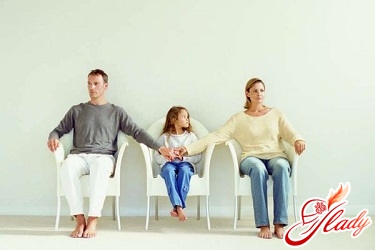 There is a certain number of signs and symptomsbehavioral deviation from generally accepted norms that should alert parents and draw their attention. Typically, the most effective diagnosis of autism in children of two years, but often it can be done much earlier. So, what should parents pay attention to? Autism in children has the following symptoms:
There is a certain number of signs and symptomsbehavioral deviation from generally accepted norms that should alert parents and draw their attention. Typically, the most effective diagnosis of autism in children of two years, but often it can be done much earlier. So, what should parents pay attention to? Autism in children has the following symptoms:
- The kid is absolutely incapable of enduring, and even more soat least for some time to keep, direct eye contact "eye to eye". A child can cry, be capricious, break out of hands, or simply look away. Although, of course, you should not conduct such an experiment if the child is upset, frightened, tired, or just being naughty. In a state of nervous excitement, such a reaction is quite possible for an absolutely healthy baby who does not have any deviations in psychological development. Also, do not make any conclusions after one or two attempts. Talk about a violation in psychological development can only be after a systematic setback in an attempt to establish eye contact with a crumb.
- The child does not react to his own name, notresponds to it. What should parents do first? Of course, he will turn to the doctor, and make sure that the child's hearing aid functions fully, without any violations. You should not try to test the baby's hearing at home, clapping at his ear and other "grandmother's methods." Modern researches of scientists have long proved that the human ear is arranged very difficult and a person, perceiving only sounds, a certain loudness and frequency, absolutely do not perceive others. So it is quite possible that a baby will hear a knock or a clap, but your voice does not. Also it is worth keeping in mind that if you've called crumbs all your life all the time, "my sun, bunny, mother's joy," etc., it's no surprise that the kid does not respond to his name - he simply does not know him .
- In crumbs there is a pronounced shortagejoint attention. A joint attention is an attempt by a child in one way or another (words or gestures and touch) to draw the attention of an adult or a peer to the subject or event that interested him. Parents should be alerted if on a walk the kid never reacts to anything and does not try to show anything that attracted his attention to the parents.
- Very often parents are touched, looking like their sonor the daughter grunts, sniffing out of their last strength, trying to cope with some unbearable task for them, whether it's trying to reach the fallen rattle or tie the shoelaces on shoes, but they do not apply for help to adults. Of course, the desire for independence should be strongly encouraged by adults, but parents should think about it. If this happens always and the child never appeals for help to the father or mother, this too may indicate many violations in mental development or problems in the child's psychological state, including autism.
- As a rule, most children are very open andgood-natured, always ready to share a toy or sweets. Of course, all children at a certain stage of development show signs of greed and categorically do not want to share anything belonging to them, but they are ready to give the last one to their beloved mother. Children who are autistic, never even try to share anything with anyone.
- In addition, very many parents of children with autism, note their rather strange attitude towards people - as if to an absolutely inanimate object.
Particularly attentive and, as a rule, already experiencedparents with older children are often alarmed even during infantile crumbs, noting atypical behavior. Children with autism are very often experiencing severe food difficulties. Such children sometimes sluggishly suck their breasts, very often refusing it, as well as from pre-bodily and small bottles, and sometimes, on the contrary, very greedily suck milk without feeling full-onset, regurgitating and again starting to suck. A little later, turning to adult food, the baby becomes very, very selective, chooses a certain group of foods and does not recognize any other food, even if he is very hungry. In the majority of children who suffer from autism, from the very birth parents mark regular violations in the full functioning of the gastrointestinal tract: very frequent regurgitation, intensely expressed intestinal colic, displays of dysbiosis - constipation, diarrhea, very frequent causeless nausea and even vomiting. Very many babies suffer from cardinal sleep disturbances. Some children can sleep for 20 - 22 hours a day, while others, on the contrary, sleep only 3 - 4 hours. Even more often in children with autism, there is a disruption of the work of the so-called biological clock. As a result, the child confuses day and night - sleeps during the day, staying awake at night. Temperament in such children is also different, but, as a rule, always from the extreme to the extreme. One kid can be very scandalous, roll up hysterics to parents that they never dreamed of, and another can spend hours lying in bed and absolutely do not react to anything, considering their pens or picture on the wallpaper. Such tranquility is often very pleasing to parents who proudly tell friends and relatives about their wonderful and well-balanced child, who does not react to cold or lack of attention for a while, much less to such a "trifle" like wet diapers. But in fact, this phenomenon should cause parents to be very wary. Of course, the symptoms of autism in children are much more numerous, but the earliest ones listed above, which are quite capable of independently detecting parents who do not have medical education, are listed above. Again, I would like to draw my parents' attention to the fact that a single manifestation of such symptoms in children is not a reason for panic and does not signal that their children have any deviations in psychological development. Only systematically repetitive, they can serve as the first alarm bell and the reason for seeking medical help. Diagnosis of autism in children is a very difficult task, even for experienced child psychotherapists who have repeatedly dealt with similar cases of the disease. Diagnosis of autism in children is simply physically impossible for one or two visits to a psychiatrist. The doctor needs a number of serious examinations and a long observation of the baby, a careful analysis of each specific case of deviation from normal mental development and the psychological state of each particular child. Often parents are too painful to prescribe repeated appointments from a doctor, conduct various tests and tests. However, they must remember that only a correctly diagnosed diagnosis and adequate treatment can help their baby to fully adapt to society and lead the fullest possible full life. Remember that often autism is accompanied, or is itself a companion of so many other, often even more severe mental disorders that need to be diagnosed in time and that need serious treatment and adjustment. For example, autism is often diagnosed with a very severe degree of mental retardation and is accompanied by severe speech disorders. To treat the same violation, leaving at the same time another without attention, simply simply has absolutely no sense. That is why the full-fledged diagnostics are so important, in its full extent. Only after the formulation of the correct, detailed diagnosis is possible the appointment of adequate treatment and the correct organization of corrective work.
Causes and treatment of autism
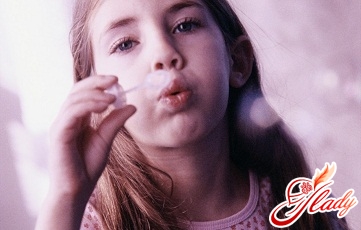 If, after careful examination, yourthe child is given a disappointing diagnosis of "autism", the first thing that parents should do is to calm and realize what happened. Your child is now simply vital for your support and active participation in his upbringing. And you can do this only if you keep your self-control, ability to think soberly and make adequate decisions. Absolutely understand your despair and pain, but you will have to understand and accept this fact, how inevitably and learn to live with it. If you are very ill and you understand that you can not manage on your own to cope with despair, if you have signs of depression, do not hesitate to ask for help. It can be your mom, sister or girlfriend. Often, for simplification, it's enough to just say the problem out loud. However, unfortunately, often this measure is not enough and it does not bring relief. And sometimes parents just feel embarrassed to talk about the problem to anyone. In such a case, you should think about asking for psychological help yourself. It is possible that several visits to a psychologist will be enough to help you to reconcile with what happened and to give you the peace of mind so necessary for you and your baby. The first thing that you must fully and fully realize is the fact that autism is the diagnosis for the rest of your life. Autism in children treatment is quite diverse, but it can only alleviate the disease and soften the process of social adaptation in the child. However, if nevertheless there is autism in children, treatment, even the best and progressive, is not able to completely cure a sick child. And yet, in no case should parents despair and look with deep anguish in the future that awaits them and their child. Your longing can in no way help the baby, but to miss that precious time, in which it is still possible to successfully adjust the psychological characteristics of children with autism. As has been said many times before, from you and only on you, to a greater extent, depends on how successful treatment and correction will be. After parents fully realize and accept the presence of the disease with autism in their child, they should find like-minded people - parents of the same "unusual" children. From communication with the research institute you will receive a huge number of advantages:
If, after careful examination, yourthe child is given a disappointing diagnosis of "autism", the first thing that parents should do is to calm and realize what happened. Your child is now simply vital for your support and active participation in his upbringing. And you can do this only if you keep your self-control, ability to think soberly and make adequate decisions. Absolutely understand your despair and pain, but you will have to understand and accept this fact, how inevitably and learn to live with it. If you are very ill and you understand that you can not manage on your own to cope with despair, if you have signs of depression, do not hesitate to ask for help. It can be your mom, sister or girlfriend. Often, for simplification, it's enough to just say the problem out loud. However, unfortunately, often this measure is not enough and it does not bring relief. And sometimes parents just feel embarrassed to talk about the problem to anyone. In such a case, you should think about asking for psychological help yourself. It is possible that several visits to a psychologist will be enough to help you to reconcile with what happened and to give you the peace of mind so necessary for you and your baby. The first thing that you must fully and fully realize is the fact that autism is the diagnosis for the rest of your life. Autism in children treatment is quite diverse, but it can only alleviate the disease and soften the process of social adaptation in the child. However, if nevertheless there is autism in children, treatment, even the best and progressive, is not able to completely cure a sick child. And yet, in no case should parents despair and look with deep anguish in the future that awaits them and their child. Your longing can in no way help the baby, but to miss that precious time, in which it is still possible to successfully adjust the psychological characteristics of children with autism. As has been said many times before, from you and only on you, to a greater extent, depends on how successful treatment and correction will be. After parents fully realize and accept the presence of the disease with autism in their child, they should find like-minded people - parents of the same "unusual" children. From communication with the research institute you will receive a huge number of advantages:
- The most important thing that will bring you this kind of communication is the realization that you are not alone in your trouble.
- Relative calm, and perhaps evensome confidence in the future. After all, before your eyes there will be an illustrative example in the face of other children and their dads and mothers, confirming that after the statement of such a diagnosis life continues.
- In most cases, parents are requiredwill share their experiences with you, give useful advice on education and behavior with such crumbs. These tips, of course, can not completely save you from all mistakes and failures, but will help to fill a much smaller number of their own cones.
- With people with exactly the same problems asyou, you can without any embarrassment share your child's successes or his failures, discuss your children's doctors of your profile or new methods of treatment and correction of this disease.
In some cases, parents' despair takesthe form of an obsession that the diagnosis of their baby is not correct and they begin to visit one specialist after another - first in their city, then in their region, and sometimes even in foreign clinics. And over and over again, hearing the confirmation of the diagnosis, refuse to accept it and begin treatment, but are looking for more and more new specialists. Of course, the consultation of two or three specialists will not bring anything but good, but do not make it an end in itself. After all, in pursuit of the illusory hope that the diagnosis is erroneous, you can irrevocably lose time, the most optimally suitable for adequate treatment and correction. Such parents even received in psychology the definition of "parents - pilgrims". And their similar behavior is nothing more than a classic escape from reality. There is also another extreme of the line of behavior: the parents categorically do not want to recognize the existence of the problem as such, in every way denying it, rejecting the treatment and behavior correction offered by the doctors and psychologists. No arguments and beliefs can not force parents to recognize the existence of the problem and begin treatment of the child. All the behavioral and psychological deviations of their crumbs they explain only by individual characteristics of character. However, such a position is fundamentally wrong and leads only to an aggravation of the problem - what now seems like a nice feature of the baby will eventually become completely inadequate and ridiculous behavior of the child, as a result of which it will become a constant object of ridicule on the part of peers. And in adolescence, childhood autism is absolutely not amenable to any treatment, as well as behavior is not amenable to correction. Thus, if the parents for some reason miss the most optimal time for treatment and correction, they doom their child to an inferior existence. Many parents are worried about the question of what will happen to their baby after he grows up and becomes an adult. It is very difficult to unequivocally answer this question - the forecasts can be very different. No self-respecting specialist will make such far-reaching forecasts and assume such responsibility. If your doctor gives you some forecasts regarding the future of your crumb (more than two or three years), this should alert you, as it calls into question the professionalism and competence of this specialist. If we take into account the fact that most often the diagnosis of "autism" is put to children of the third and fifth years of life, then no doctor during the first year of treatment and adjustment will be able to give an accurate prediction even about the child's ability to study in a specialized or regular school, about adult life. For children with similar diagnoses, doctors are observed for a fairly long period - two to three years. They pay attention to everything, even seemingly insignificant at first glance, little things, the results of treatment and the course of behavioral adjustments. And only after a long time it becomes possible to make any forecasts for a period not exceeding three years. However, parents still continue to wonder what can expect in life children with autism. Based on numerous and long-term observations of such people, there are different trends of the disease:
- In particularly severe cases,very long treatment, careful psychological adjustment. However, the only thing that can be achieved during the years of hard work with the child is an elementary adaptation in everyday life. You can teach your child the basic skills of hygiene - to wash, brush your teeth, bathe, use the toilet, get dressed yourself, in some cases even cook your own food. And often it is even more difficult to do than prepare another child with autism to school.
- Some children very quickly and easily learnall the necessary skills and are capable of training not only in specialized schools of a compensating kind, but also in ordinary schools. Moreover, often such children learn much more successfully their healthy peers and receive gold medals, enter higher education institutions and graduate them with red diplomas. However, you will never see such a child chatting with classmates at a break or having fun at a student's party. Children suffering from autism, can fully effectively learn, but that's to communicate - almost never. That is why such children often become objects of ridicule and persecution by their peers.
- However, stories are known cases of simply stunningsocial adaptation. For example, several outstanding people in Russia suffer from autism: a film actor, a politician, a doctor and several writers. Of course, for ethical reasons, the names in this material are not mentioned.
- With some forms of autism, with timelybegun treatment and adjustment of behavior in childhood, growing up, people not only get the rights to drive, but even create their own full and prosperous families and none of the people around them even suspect of the presence of such a disease.
One of the most frequently asked questions,who hear at their reception child psychiatrists, after they tell their parents about the diagnosis of their child, this is the question "Why?". Autism in children has a reason that has not yet been studied. However, when discussing such a complex issue as autism in children, the causes of inherited character always take a leading position. As a rule, if a child is born in the family, who is subsequently diagnosed with autism, one of his ancestors was 70% likely to suffer from the same disease.  Below is a list of autism in children, reasons:
Below is a list of autism in children, reasons:
- In addition to the aforementioned hereditary factoroften the cause of autism is any organic damage to the central nervous system of the fetus, occurring during the period of both intrauterine development, and in the process of childbirth and even early infancy.
- Also, researchers - researchers tend to believe that infection and a woman's disease with rubella, as well as with chickenpox, in many cases lead to the birth of children with autism.
- Serious psychological trauma of a woman, received by her at an early pregnancy, in the first trimester (in the first 12 weeks), can also provoke the development of a child's autism.
However, despite the abundance of all kinds ofassumptions and hypotheses about the nature of the onset of the child's illness by autism, doctors have not yet come to a consensus. Therefore, do not ask your doctor to state the exact cause of your child's illness. It is unlikely that the doctor will be able to reliably answer your question. And not because he does not want you to know the truth, but because while in the world there is no exact way to establish the cause of the development of autism - it can only be assumed. But, you see, from assumptions there is absolutely no sense for you or your child. Well, you will learn that, probably, in one of the genes of your ancestors, there was that fateful mutation that caused the development of autism in your crumbs. But this knowledge will not become easier and the treatment will not be more effective. A much better result will be borne by your desire to help the child with confidence to look into tomorrow, than if you dig in the past yesterday, to change something in which is still not in your power. If autism is diagnosed in children, treatment is simply necessary. However, the universal method of treating autism simply does not exist. Each child needs his own, strictly individual approach, the choice of the method of treatment and correctional techniques. However, there is one common principle for all, even a rule, which must be strictly observed. Most importantly, what should be directed to the mutual efforts of doctors and parents is to establish good mutual contact and trust, but maintaining an adequate level of criticality. In no case should parents have any doubts about whether all specialists are competent enough to interact with their child in one way or another. And doctors, in turn, should see the openness and goodwill of parents, the willingness to accept their help. Only in this case is possible successful interaction and teamwork. Namely, this method gives the most tangible results in the fight against the disease. However, this does not mean at all that if parents have any questions or doubts about this or that method of treatment, they should keep silent about it and do not pretend that something is bothering them. On the contrary, all doubts should be resolved as soon as they arise. In the same case, if for some reason you can not find an understanding with the doctors, it is worthwhile to think about changing the specialists, since such treatment will not only bring no improvement, but can greatly worsen the course of the illness and the state of the child. Another important rule is the following. Despite the generally known fact that treatment and correction of behavior in autism should begin as early as possible. Despite the fact that up to three years, such a diagnosis is simply not put, in case of any alarming signs, parents should consult a doctor who can make a decision about preventive treatment and behavior correction. Parents in no case should not abandon the proposed treatment, because even if later the diagnosis is not confirmed, nothing but benefit, lessons with the baby will not bring. Work with a toddler who has already been diagnosed should be systematic and comprehensive - in addition to the psychological pedagogical work, there should also be medical treatment. Parents should not try to interfere in the work of specialists and try to independently make adjustments to the planned treatment plan. Of course, you can express your preferences or wishes to doctors and educators, but nevertheless, if you do not have the appropriate education, give the right to choose a method and treatment plan for people who have the necessary skills, knowledge and experience in this area. And in any case it is unacceptable that parents at their discretion change the drug treatment scheme - change the drugs, their dosage and even the time of reception. This can have an extremely negative impact on the children's body and lead to irreversible changes. It is also very important for parents to take into account this psychological peculiarity of children with autism, as a virtually absent ability to adapt to new circumstances, people and circumstances. That is why it is highly recommended not to change the specialists and the environment of the child often. At home it is necessary to try to create conditions and a way of life, most similar to the institution in which corrective activities with the child take place. The birth of a child with autism changes the family way of life in the most cardinal way: the daily routine, the behavior of all members of the family, persistence and consistency are the most necessary components of successful treatment and adjustment. And this way of life of the family will last not one or two years, but a long one - for a long time. The length of corrective work with children with autism should continue throughout the long years of a person's life. But the most productive and intensive is the work in the initial stage of the disease, as well as in the period of primary school age. It should also be borne in mind that most of the corrective work falls on the shoulders of parents and other family members, and not on doctors and educators. And doctors have such an expression as "a corrective program for working with children who are autistic, should last at least 25 hours a day." Of course, do not take this expression literally, but it implies that the work must be done continuously, consistently and systematically. In other words, the whole life of the family should be a continuous corrective work with the child. I would like to draw the attention of parents to the fact that it is very, very difficult to make any decisions for a child suffering from autism. Therefore, the whole life of the child must be subject to the rules once and for all. Any deviation from these rules can permanently knock the baby out of the rut and cross out the months of your joint efforts with doctors and teachers. The child must live according to a strictly defined regime of the day, use strictly certain things, play with strictly defined toys. Of course, at first glance, this line of behavior of parents may seem tough and even somewhat cruel, but this is the most optimal option for the child himself. After a certain progress in the treatment of the border of what is permitted, it is gradually necessary to expand. There are several general recommendations for parents of children with autism. Of course, stick to them or develop their own line of behavior, it's up to you, but you still need to read them:
- The first thing you just need to do isforce the child to accept the fact that he is also a real full member of the family. And do not give him too much attention in such a way that the child noticed it. A huge amount of attention can bring an absolutely opposite effect - a child may not understand what it is caused and simply feel uncomfortable and close more tightly in oneself.
- Despite the fact that such children are simply extremelyyou need a strictly established daily routine, try to create the illusion that the kid has set it himself. Be sure to consult with him, gently leading to the child's own decision. If you try to forcibly impose your regime of the day, the child can begin to protest violently. However, the observance of the regime must be carefully monitored, avoiding deviations in either direction for more than half an hour.
- Be sure to praise the child, even for the mostminor successes, but make sure that the praise is not too violent and faked - children with autism, as well as healthy babies, very thinly feel falsity. I would also like to remind parents that praise should follow immediately after the act - as a rule, children with autism rarely remember past events and will not understand what the belated praise is.
- Do not forget that misconductchildren very quickly become accustomed, and children with autism are no exception. That is why undesirable behavior must immediately be stopped in the strongest possible way.
- But the slightest, the most insignificant, desirea child to any changes parents should actively support and encourage. After all, if you try to learn something new baby does not get your understanding and support on your part, he can close in himself and not repeat such attempts more than ever.
- Curbing the unwanted behavior of the child, and evenpunishing him, do not let the child understand that you are unhappy with him. You must give the child a firm grasp that the discontent was not caused by him, but only by his behavior. The most important thing that a child should understand and accept is that the world around him is friendly and affable, and not opposed to it.
Of course, all the information given in this article,is not of a scientific nature and can not become for parents the only guide to action - rather, it's just information for reflection. The birth of a sick child is always a serious event, but it is necessary to find the strength and live on. And not just live, but live together with your treasure - as fully as possible and, of course, happily. We advise you to read:





